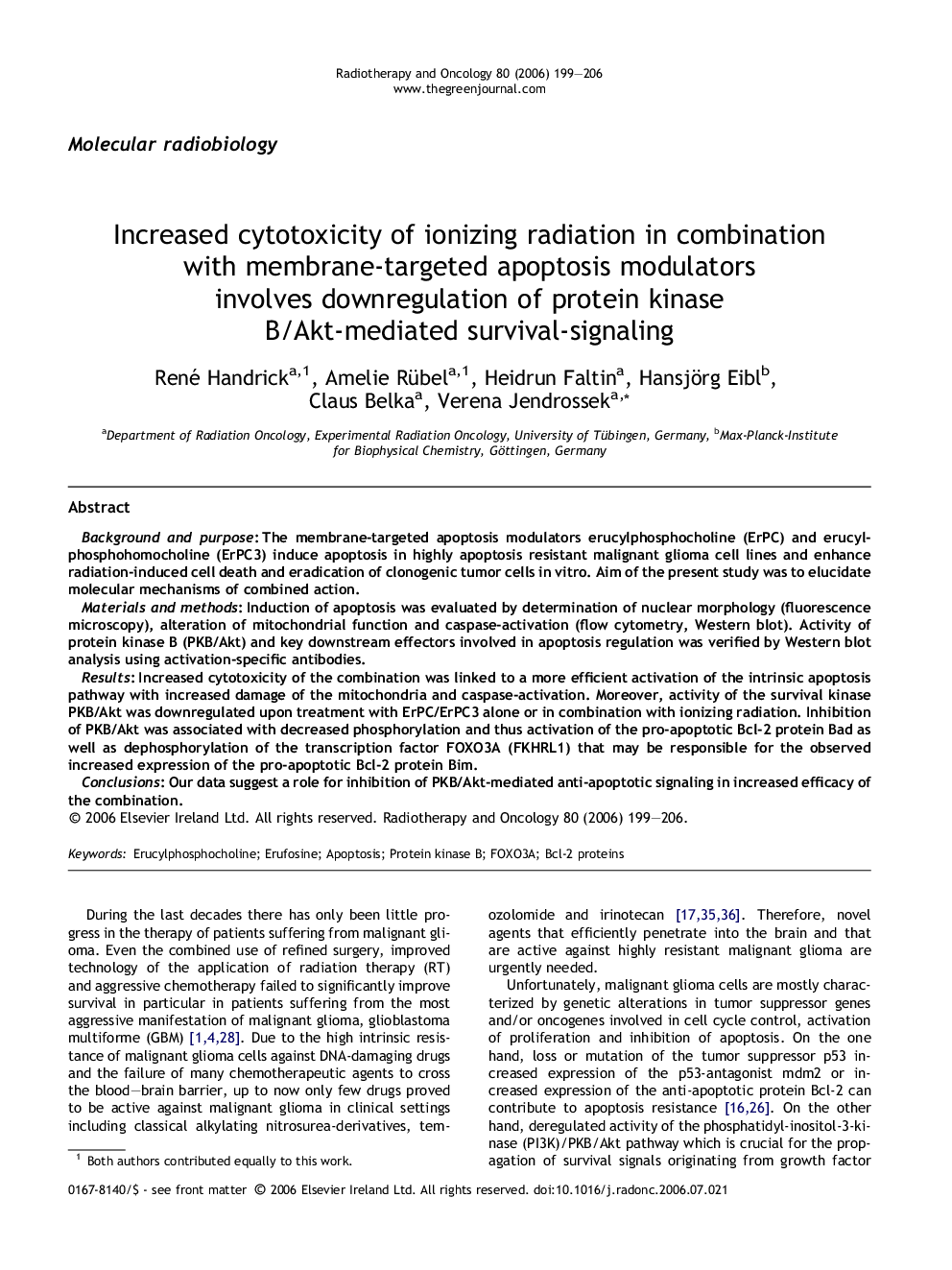| Article ID | Journal | Published Year | Pages | File Type |
|---|---|---|---|---|
| 2161324 | Radiotherapy and Oncology | 2006 | 8 Pages |
Background and purposeThe membrane-targeted apoptosis modulators erucylphosphocholine (ErPC) and erucylphosphohomocholine (ErPC3) induce apoptosis in highly apoptosis resistant malignant glioma cell lines and enhance radiation-induced cell death and eradication of clonogenic tumor cells in vitro. Aim of the present study was to elucidate molecular mechanisms of combined action.Materials and methodsInduction of apoptosis was evaluated by determination of nuclear morphology (fluorescence microscopy), alteration of mitochondrial function and caspase-activation (flow cytometry, Western blot). Activity of protein kinase B (PKB/Akt) and key downstream effectors involved in apoptosis regulation was verified by Western blot analysis using activation-specific antibodies.ResultsIncreased cytotoxicity of the combination was linked to a more efficient activation of the intrinsic apoptosis pathway with increased damage of the mitochondria and caspase-activation. Moreover, activity of the survival kinase PKB/Akt was downregulated upon treatment with ErPC/ErPC3 alone or in combination with ionizing radiation. Inhibition of PKB/Akt was associated with decreased phosphorylation and thus activation of the pro-apoptotic Bcl-2 protein Bad as well as dephosphorylation of the transcription factor FOXO3A (FKHRL1) that may be responsible for the observed increased expression of the pro-apoptotic Bcl-2 protein Bim.ConclusionsOur data suggest a role for inhibition of PKB/Akt-mediated anti-apoptotic signaling in increased efficacy of the combination.
